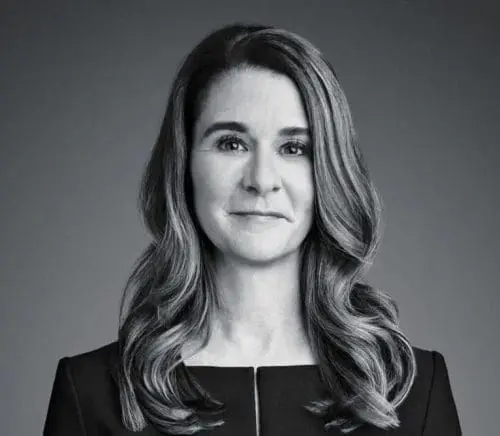“We” have been soldiers on the side of those warring against real food.
Barry Brownstein
The Wall Street Journal recently reported on a sad old story: the poor quality of the ultra-processed bread in American supermarkets. The WSJ told us they bought “fresh” bread in April, which still looked “fresh” in June.
If you enjoy eating real sourdough bread made with very few ingredients, you know it gets hard within days. If the sourdough bread you eat is made with organic whole grains, you reduce your glyphosate consumption, and the impact on your body is far different from supermarket bread.
A carb is not a carb. The WSJ reported, “Diets high in ultra-processed foods have been linked to health problems including obesity, Type 2 diabetes, depression, cancer and cardiovascular disease.”
“A cohort study involving nearly 45,000 middle-aged and older individuals in France found that for every 10 percent increase in the intake of ultra-processed foods, the risk of all-cause mortality increased by 14 percent. According to a 2024 umbrella review published in the BMJ, convincing evidence has been found linking ultra-processed food to a 50 percent increase in cardiovascular disease mortality, a 53 percent increase in common mental disorder outcomes, and a dose-dependent 12 percent increase in diabetes risk.” Source
Cal Newport describes what it means for food to be ultra-processed: “Ultra-processed foods, at their most damaging extreme, are made by breaking down core stock ingredients such as corn or soy into their basic organic building blocks, then recombining these elements into hyper-palatable combinations, rich in salt, sugar, and fat, soaked with unpronounceable chemical emulsifiers and preservatives.” Ultra-processed foods destroy your gut health and lead to endless health issues.
A war is raging against real food. The war’s first casualty is your health. This essay does not document this war but suggests a step you can take in the fight for real food.
First, acknowledge that “we” have been soldiers on the side of those warring against real food. For decades, “we” have demanded garbage food. “We” eat for taste and convenience. For our health, “we” prefer pills and supplements over disciplined eating and exercise.
With our habitual behavior, “we” enable paper tigers such as Bill Gates, Klaus Schwab, and Anthony Fauci. Governments have given them the power to coerce the public, but our preferences set the stage. Fear-mongering pill pushers are in low demand among responsible adults.
There is still time to join the fight for real food. We still have markets, and consumers vote with their choices to spend their money on real foods. Ludwig von Mises explained, in markets, “we” are the real bosses:
The real bosses [under capitalism] are the consumers. They, by their buying and by their abstention from buying, decide who should own the capital and run the plants. They determine what should be produced and in what quantity and quality. Their attitudes result either in profit or in loss for the enterpriser. They make poor men rich and rich men poor. They are no easy bosses. They are full of whims and fancies, changeable and unpredictable. They do not care a whit for past merit. As soon as something is offered to them that they like better or is cheaper, they desert their old purveyors.
No courage is required for you to join the fight for real food. Your job and your friendships won’t be at risk, only old habits. You can toss out “old purveyors.”
Do you think you are in the fight for real food by posting diatribes on social media against the WEF’s Great Reset, Anthony Fauci, etc. while consuming ultra-processed food?
The generals in the war against real food don’t care about your social media posts. They have contempt for you. They “love” their family as you do yours, but their family is Big Pharma and Big Agribusiness.
As you reduce your dependence on the the medical-industrial complex, you starve the beast. You need a plan of action to gain mental fortitude and resist temptations to get with their programs.
Summer is a great time to join the battle for real food. Begin by eating more fresh fruits and vegetables purchased from your local farmers. The beast peddles ultra-proccessed food. Take your business elsewhere. You will be starving the beast while you fortify your health.
From June through October, my wife and I are fortunate to buy 100% of our vegetables from two organic farms in our area. Some of the producers we’ve known for over 25 years.
The farms are not certified organic because the costs of meeting Federal regulations are prohibitive, but we know their farming practices.
They pick the produce the same morning we buy it. Pictured above is a recent haul: kale, shelling peas, mustard greens, strawberries, tomatoes, baby bok choy, pac choy, broccolini, red leaf, green leaf, and romaine lettuces. Camera shy are yellow summer squash and zucchini.
My wife and I will consume this bounty in about a week. Vegetables, especially cruciferous vegetables, are a significant portion of our lunch and dinner meals, along with wild-caught fish, beans, and whole grains. But, our diet is not the point.
Human beings are omnivores. No matter what percentage of animal protein in your diet best supports your biochemical individuality, the scientific evidence is overwhelming that vegetables should make up a significant part of what you eat daily. And don’t include potatoes in the daily count of vegetables you consume.
No matter how many vegetables you eat, it won’t counteract the daily consumption of ultra-processed foods loaded with sugar and heavily processed vegetable oils, such as soybean, cottonseed, and canola.
Nothing guarantees good health, no matter how many things you do right. But why not tilt the odds in your favor? Include regular exercise and spiritual practice in your everyday life, and the odds for good health increase even more.
If you don’t live in a rural area, farmer’s markets can be found in most cities.
Decades ago, when we lived in Baltimore, I taught a Saturday MBA class that began at 8:30 am. On my way to class, I stopped at a farmers’ market. Besides vegetables, I was sure to buy the family freshly baked bread and pastries. After class, I joined my wife and children at the little league baseball game or the soccer field.
Today, when I asked my now adult children what they remember about those Saturday morning treats, they answered crusty fresh bread, not pastries. One step at a time, we build good habits.
One other thing: your local farmer prefers payment in cash. The more businesses that rely on cash, the less likely CBDCs will arrive soon.
The mindset you cultivate guides your daily choices, and how you live each day builds your life. Together, by our choices, “we” take back our food supply and build healthier communities.





